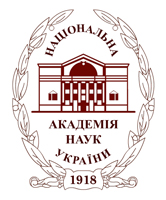Dobrovolska Viktoriya
Theoretical and Methodological Principles of the Study of Socio-communication Space of CultureAbstract: The article substantiates the possibilities of comprehensive study of the socio-communication space of culture on the basis of the use of cognitive capabilities, as well as systemic, structural and functional approaches. The concept of socio-communication space of culture is revealed. The sociocommunication space of culture has its own functions, infrastructure and subject components that are determined by the modern and perspective possibilities of information technologies and the need for the development of documentary communication. In order to substantiate the theoretical and methodological apparatus, the properties of the socio-communication space of culture as a developing system and the multifaceted contradictions due to the tendencies of culture development as a higher level system are studied. The methodological bases of studying the socio-communication space of culture are considered, which can be developed on the basis of modern approaches to knowledge, formed on the grounds of general scientific categories, to which the philosophy includes a group of rapidly expanding in various fields of knowledge fundamental concepts of a very high degree of generalization. It is about "system", "structure", "function" and so on. The cognitive function of these categories is manifested precisely in the formation on their basis of appropriate general scientific approaches – systemic, structural, functional, which need to be disseminated in documentary research. Attention is paid to the study of the socio-communication space of culture at the stage of development of information technologies in the functional section as an integral part of the system of social communications. The interaction of communication and system approach is demonstrated, which allows to study the socio-communication space of culture as a complex communication-oriented system. Combining the capabilities of communication and structural approaches makes it possible to study the communication orientation of the structural elements of the sociocommunication space of culture and the workflow development. The integration of communication and functional approaches is aimed at studying the influence of the external environment on communication processes in the socio-communication space of culture. Keywords: social communications, socio-communication space of culture, documentary science, research methodology of space of culture.
Author(s) citation:
Cite:
Dobrovolska Viktoriya (2019). Theoretical and Methodological Principles of the Study of Socio-communication Space of Culture. Bibliotechnyi visnyk, (6) 10-17. (In Ukrainan). doi: https://doi.org/10.15407/bv2019.06.010
References: - Baliuta, P. A. (2014). Prostranstvo kultury i kulturnoe prostranstvo: opredelenie, spetcifika i vzaimodeistvie [Cultural space and cultural space: definition, specificity and interaction]. Omskii Nauchnyi Vestnik, 3, 68-70. [In Russian].
- Bebyk, V. M. (2005). Informatsiino-komunikatsiinyi menedzhment u hlobalnomu suspilstvi: psykholohiia, tekhnolohii, tekhnika pablik ryleishnz [Information and communication management in the global society: psychology, technology, technique of public relations]. Kyiv, Ukraine. [In Ukrainian].
- Vasilik, M. A. (2003). Osnovy teorii kommunikatcii [Fundamentals of communication theory]. Moscow, Russia. [In Russian].
- Horovyi, V. M. (2010). Sotsialni informatsiini komunikatsii, ikh napovnennia i resurs [Social information communications, their content and resource]. Kyiv, Ukraine. [In Ukrainian].
- Grachev, V. I. (2007). Sotciokulturnaia kommunikatciia v kontekste sovremennoi khudozhestvennoi kultury [Sociocultural communication in the context of contemporary artistic culture]. Vestnik Moskovskogo Gosudarstvennogo Universiteta Kultury i Iskusstv, 4, 22-26. [In Russian].
- Dubas, O. P. (2011). Informatsiino-komunikatsiinyi prostir: kulturno-politychni determinanty [Information and communication space: cultural and political determinants]. Kyiv, Ukraine. [In Ukrainian].
- Dubas, O. P. (2010). Informatsiino-komunikatsiinyi prostir: poniattia, sutnist, struktura [Information and communication space: Concept, essence, structure]. Suchasna Ukrainska Polityka. Polityky i Politolohy Pro Nei, 19, 223-232. [In Ukrainian].
- Ilganaeva, V. A. (2009). Sotcialnye kommunikatcii (teoriia, metodologiia, deiatelnost) [Social communications (theory, methodology, activity)]. Kharkov, Ukraine. [In Russian].
- Ilhanaieva, V. O. (2008). Instytualizatsiia sotsialno-komunikatsiinoi sfery suspilstva [Institutionalization of social and communication sphere of society]. Osvita Rehionu. Politolohiia. Psykholohiia. Komunikatsii, 1, 148. [In Ukrainian].
- Kuleshov, S. H. (1995). Dokumentalni dzherela naukovoi informatsii: poniattia, istoriia typolohichnoi skhemy [Documentary sources of scientific information: concept, history of typological scheme]. Kyiv, Ukraine. [In Ukrainian].
- Kushnarenko, N. M. (2006). Zahalnonaukovi metody dokumentolohichnykh doslidzhen [General scientific methods of documentary research]. Bibliotekoznavstvo. Dokumentoznavstvo. Informolohiia, 3, 72-80. [In Ukrainian].
- Kushnarenko, N. M. (2004). Metodolohichni zasady knyhoznavchykh, bibliotekoznavchykh i bibliohrafoznavchykh doslidzhen [Methodological foundations of books, librarianship and bibliographic studies]. Visn. KhDAK, 15, 84-94. [In Ukrainian].
- Larkov, N. S. (2006). Dokumentovedenie [Documentation]. Moscow, Russia. [In Russian].
- Manakova, I. Yu. (2008). Chelovek v postindustrialnom mire [Man in the post-industrial world]. Extended abstract of PhD dissertation. Voronezh, Russia. [In Russian].
- Pleshkevich, E. A. (2005). Osnovy obshchei teorii dokumenta. [Fundamentals of communication theory]. Saratov, Russia. [In Russian].
- Pleshkevich, E. A. (2011). Evoliutciia teoreticheskikh predstavlenii o dokumente [Evolution of theoretical ideas about the document]. Moscow, Russia. [In Russian].
- Rizun, V. V. (2011). Nacherky do metodolohii doslidzhen sotsialnykh komunikatsii [Outlines for the methodology of social communication research]. Svit Sotsialnykh Komunikatsii, 1, 7-15. [In Ukrainian].
- Slobodianyk, M. S. (2010). Bibiloteka. Dokument. Komunikatsii [Library. Document. Communications]. Kyiv, Ukraine. [In Ukrainian].
- Slobodianyk, M. S. (1995). Naukova biblioteka: evoliutsiia struktury i funktsii [Scientific library: evolution of structure and functions]. Kyiv, Ukraine. [In Ukrainian].
- Sokolov, A. V. (1996). Vvedenie v teoriiu sotcialnoi kommunikatcii. [Introduction to the theory of social communication]. St. Petersburg, Russia [In Russian].
- Sokolov, A. V. (2001). Sotcialnye kommunikatcii [Social communications]. Moscow, Russia. [In Russian].
- Stoliarov, Yu. N. (1981). Biblioteka: strukturno-funktcionalnyi podkhod [Library: structural and functional approach]. Moscow. Russia. [In Russian].
- Sharkov, F. I. (2003). Osnovy teorii kommunikatcii [Fundamentals of Communication Theory]. Moscow. Russia. [In Russian].
- Shvetsova-Vodka, H. M. (2007). Metody dokumentoznavstva [Methods of document science]. Bibliotekoznavstvo. Dokumentoznavstvo. Informolohiia, 1, 81-85. [In Ukrainian].
|
 bv.nbuv.gov.ua
bv.nbuv.gov.ua
![]() Content (2019, Issue 6)
Content (2019, Issue 6)![]()
![]()